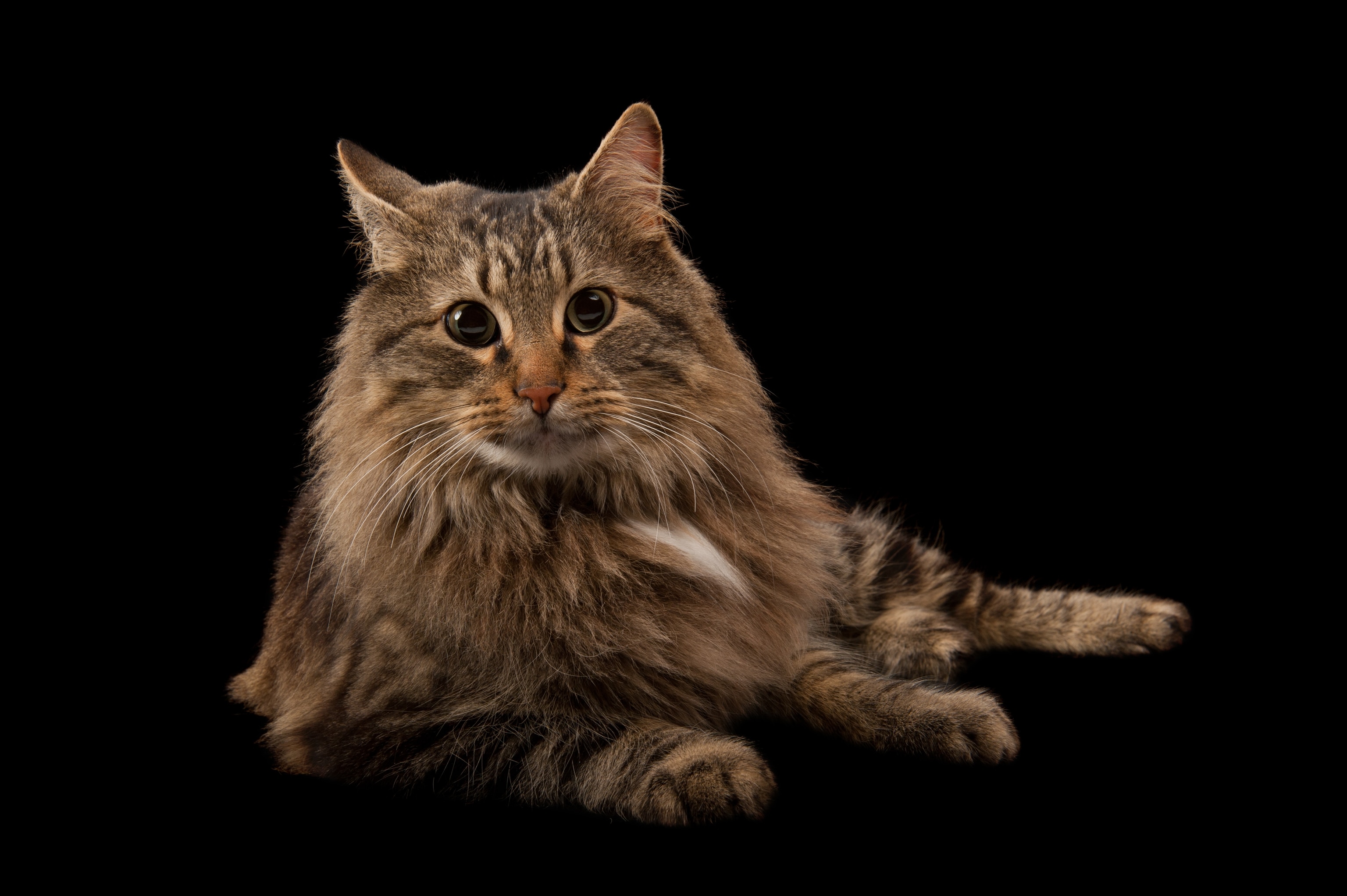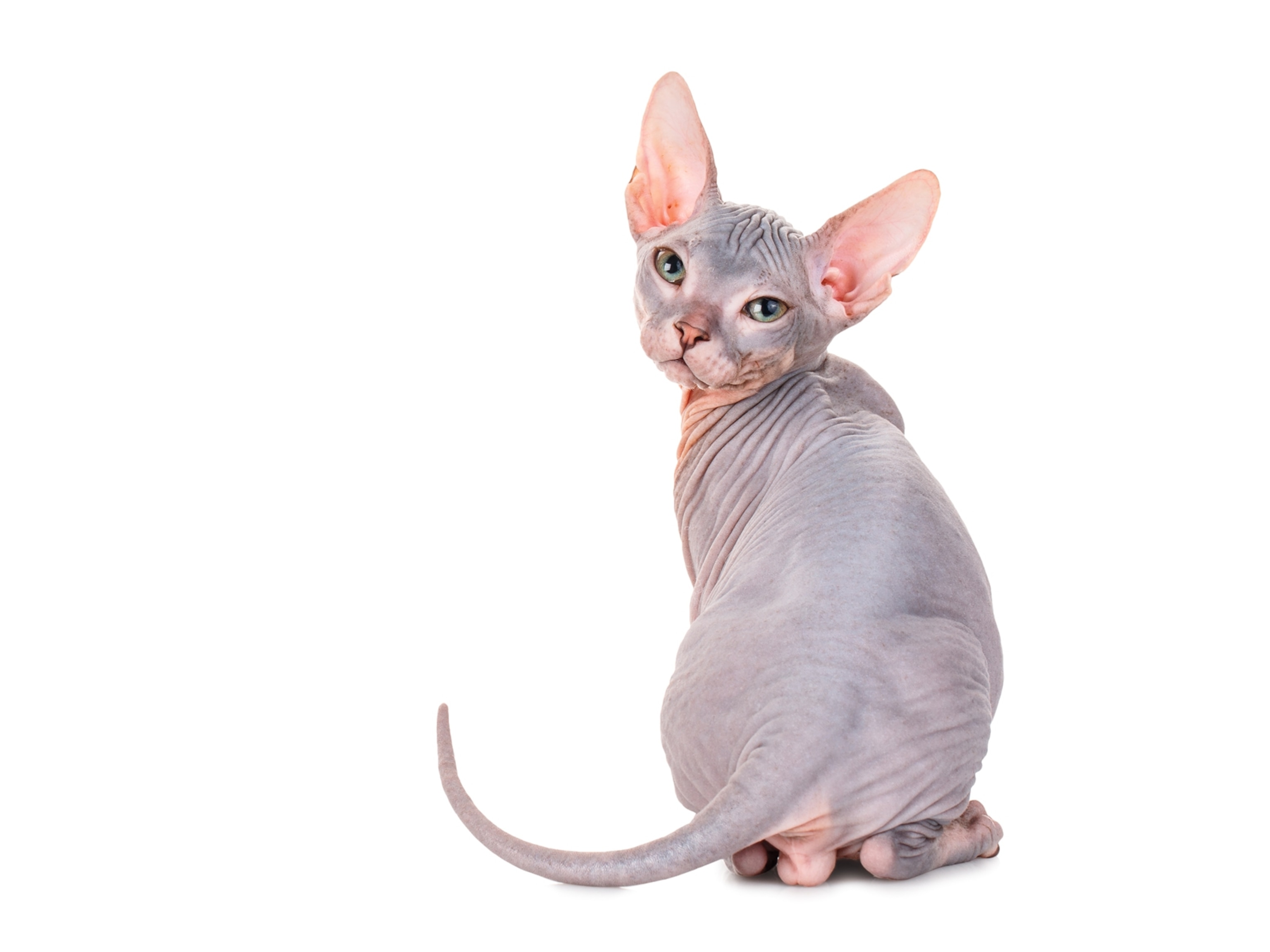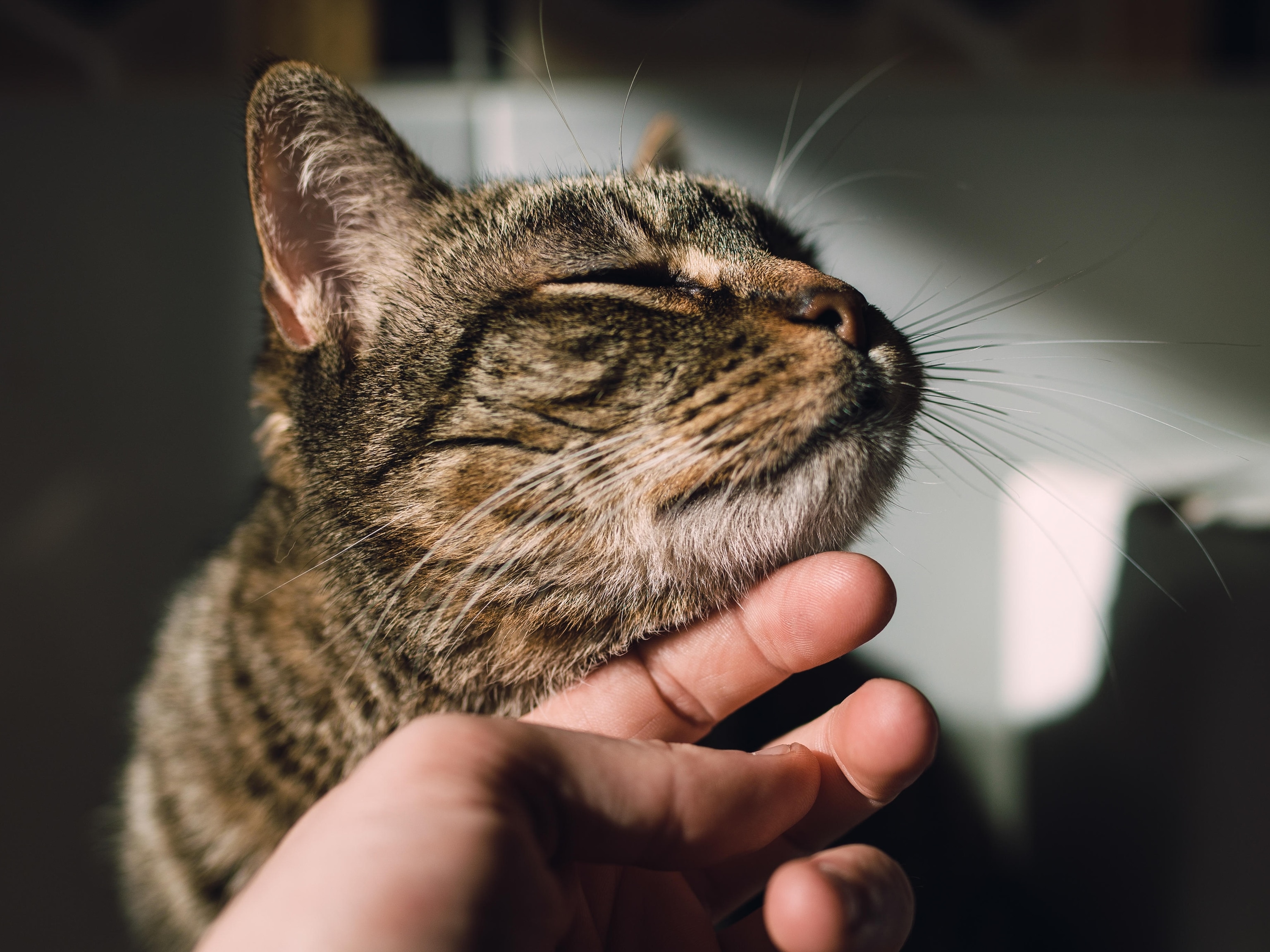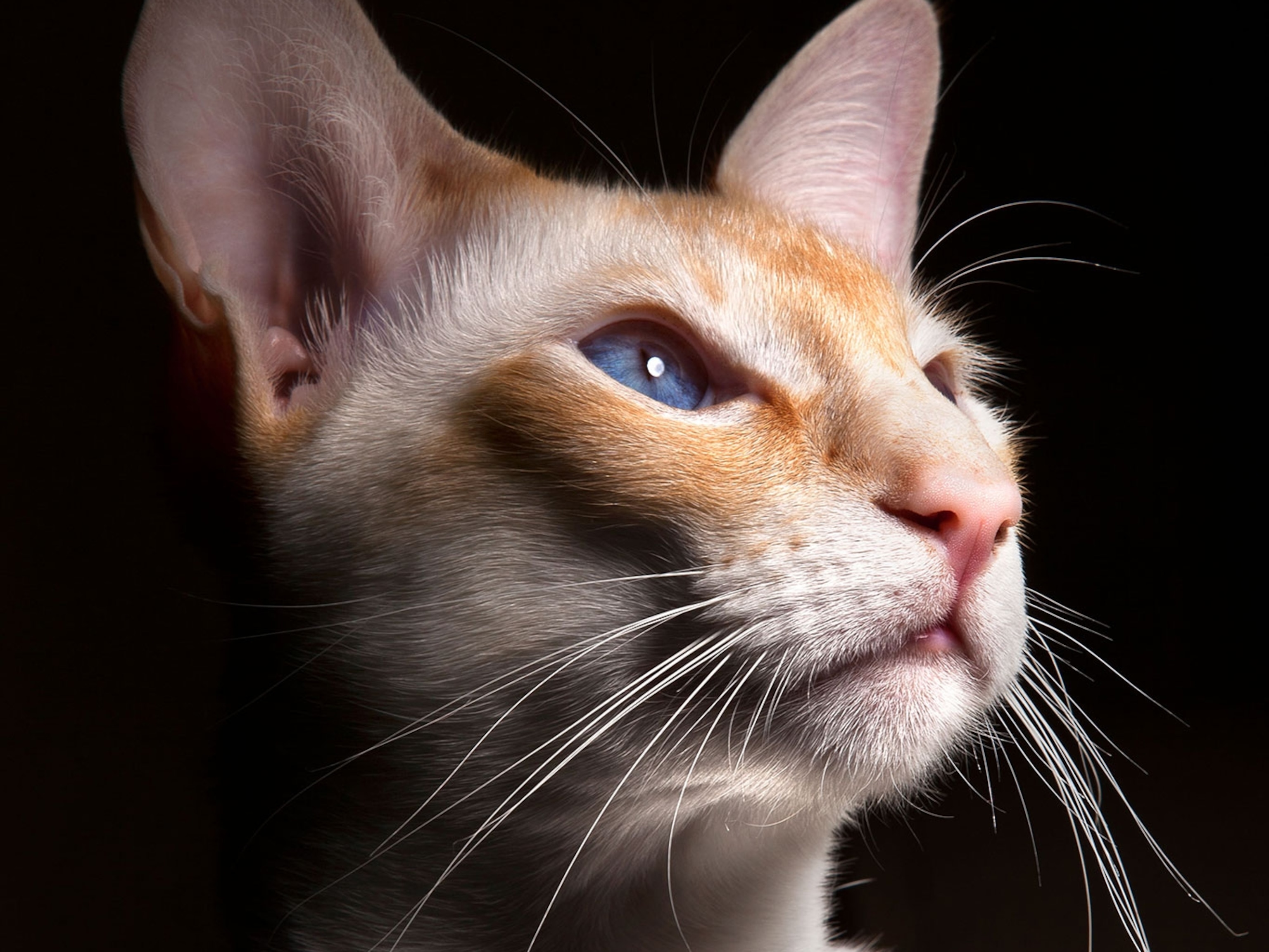
Your cat can recognize your voice. Yes, really.
Filling a long-standing gap in feline research, a small study shows that cats can distinguish their owners' voices from those of strangers.
Like many who share their homes with a cat, I often talk to the miniature predator who sleeps on my pillow. Mostly, I ask Ophelia whether she wants food or snuggles. I know she hears me—her oversize ears rotate like furry satellite dishes in my direction as soon as I open my mouth. What’s less clear is whether she's aware I am addressing her.
A new study in Animal Cognition shows that she probably is.
Charlotte de Mouzon, fellow cat lover and ethologist—a scientist who studies animal behavior—has devoted her career to understanding the cat-human bond from the kitty’s perspective.
De Mouzon, who works for the pet service company EthoCat in Bordeaux, France, designed a series of experiments to test how pet cats of various breeds responded to hearing recordings of their owners and of strangers talking to them. (What do cats think about us? You may be surprised.)
When they heard a familiar voice, the felines responded in subtle but distinct ways, such as swishing their tails, pivoting their ears, and freezing while grooming. They showed no such response when owners were speaking to other people, or to strangers’ voices. The study is among the first to show cats can recognize—and respond to—their owners’ voices.
“There is really a special communication that develops between every owner and their cat,” says de Mouzon, who is also a researcher at the University of Paris Nanterre.
“The fact that they're attentive to the different ways we speak to them, it shows how important we are to them outside of just feeding them or giving them shelter.”
A paw-city of cat research
Beyond our choice of words, we express ourselves using inflection, tone, and pitch. For instance, we might use different words and phrases around friends than we do talking to our bosses. And then there’s baby talk.
Researchers call it infant-directed speech, and it usually consists of repetitive words spoken in a higher pitch and simpler syntax than adult speech. Babies love it, too—studies show that babies learn new words and remember them better when adults use infant-directed speech.
So it’s no surprise the millions of people who consider their pets “furbabies” also use such altered speech patterns when addressing their pets. (Learn surprising things you never knew about your cat.)
While researchers have long known that both babies and dogs responded positively to this pet-directed speech, they’ve focused less on cats in their experiments.
Jennifer Vonk, a comparative psychologist at Oakland University in Michigan, says that may be because, unlike dogs, cats aren’t easily trained, and are often fearful in new situations—two factors that make experiments more challenging. Another roadblock may be the perception that cats are less social than other pets, Vonk says.
Despite this reputation of being aloof and uncaring, cats form deep attachments to humans, often preferring their company to other rewards, such as food, according to recent studies.
Can you hear me now?
Because speech is an important form of communication for humans, de Mouzon wanted to know if cats know when their owners were talking to them, and whether they respond differently to strangers.
So De Mouzon recruited 16 cat owners in Bordeaux to take part in the experiment. She first recorded the owners speaking specific phrases, such as “Do you want to play?”, “Do you want a treat?”, and “See you later.” Their voices were recorded twice: once as if they were talking to their cat, and once as if they were speaking to a person.
Recordings in hand, De Mouzon conducted the next stage of the experiments in the cats’ homes, where the animals were comfortable and would respond naturally. At each home, she played audio recordings of both the cat’s owner and strangers speaking the same phrases, while video recording the cat’s responses.
The cats responded when they heard their owners using cat-directed speech, but not human-to-human speech. They also did not show a response when they heard a stranger’s voice, whether using cat talk or adult talk. This indicated that the cats could recognize when their owners were talking to them, de Mouzon says.
A stronger bond
“This really important,” says Marsha Reijgwart, an ethologist at Purr Doctors, an educational research facility in the Netherlands, who wasn’t involved in the study.
“It’s an indication that cats really can distinguish that the sound they’re hearing is relevant to them.”
Esther Bouma, Reijgwart’s collaborator at Purr Doctors, agrees, though she cautions that the work doesn’t show that cats know what we’re saying. She also says that the small sample size and relative uniformity of the cats and their owners can make it hard to generalize to all cat-human relationships. (Learn how cats clawed their way into our hearts.)
But de Mouzon said her research should give cat owners confidence that their pets are likely listening to them.
“Even knowing cats aren’t human babies,” she says, “we can still talk to them in a way they’re sensitive to and that can reinforce our bond.”





